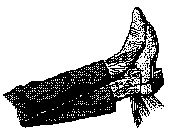The latest computer games are based on simulation e.g. SimCity and SimEarth. You build a city and the program works out the consequences.
When Stephen Jobs left Apple he started a new company: NeXt Inc. He formulated his vision as follows: "We decided we wanted a company that had a lot to do with education and in particular higher education, colleges and universities. So our vision is that there's a revolution in software going on now on college and university campuses. And it has a lot to with providing two types of breakthrough software. One is called simulated learning environments, You can't give a student in physics a linear accelerator. You can't give a student in biology a five million dollar recombinant DNA laboratory. But you can simulate those things, you can simulate them on a very powerful computer. It is not possible for students to afford these things. It is not possible for most faculty members to afford these things. So if we can take what we do best, which is to find really great technology and pull it down to a price that's affordable to people, if we do the same thing for this type of computer, which is maybe ten times as powerful as a personal computer, that we did for personal computers, then I think we can make a real difference in the way experience happens in the next five years. And that's what we're trying to do."
And he continues: "And one of the things that made Apple great was that in the early days it was built from the heart. ..... Now unfortunately we did not always use our heads, and we can do better in many respects because we are wiser and smarter and know more and those kinds of things. But one of the most important things, one of my largest wishes is that we build NeXt from the heart."
Interesting stuff, even more interesting that we all can afford it, we all have the most powerful and vast computer imaginable, and more...... : our brain. For although we often compare the brain to a computer this is something we do to understand it and it does not mean that it is one. There is only some similarity, but the computer and brain are not in the same league.
Just sit back and relax....

You are invited to run your own simulation program from your heart. Carefully describe the situation you want to focus on (cf. analysis). Then change some parameters and imagine what might happen. Examples of imagining exercises are given in the four previous 'books'. You can do this alone or better still with a few others. You can reverse certain situations and carefully see what happens. You can try to find solutions how to prevent these things from happening. If you then reverse these solutions you may have found some useful answers. Very telling is the way Tesla, an extremely productive technological innovator (fluorescent light, A.C. generator, 'Tesla' coil) could visualize his inventions. As described by J.J. O'Neill in Prodigal Genius: the Life of Nikola Tesla, he claimed that Tesla 'could project before his eyes a picture complete in every detail, of every part of the machine.' Tesla also claimed to be able to test his devices mentally, by having them run for weeks - after which time he would examine them thoroughly for signs of wear.
Simulation can be very funny, just think of Monty Python's Flying Circus, they did it all the time. It is fun and it helps.
